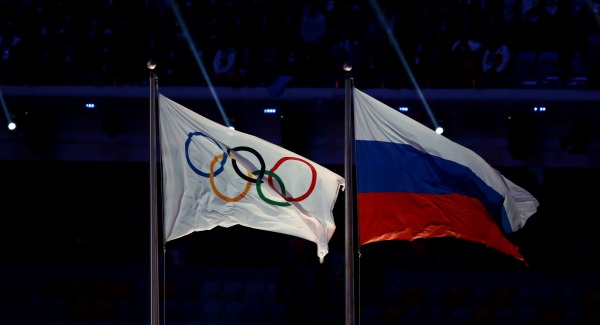The president of world swimming’s governing body FINA has denied that the International Olympic Committee blocked his federation’s attempt to set much stricter criteria for the eligibility of Russian swimmers ahead of the Rio Games.
In an email seen by Press Association Sport, FINA president Julio Maglione wrote to the members of his doping control review board (DCRB) in the last week of Rio 2016 to explain to them why he had not followed their guidance on deciding which Russians should be allowed to compete.

The DCRB, an eight-strong panel of anti-doping experts, had asked Maglione why FINA failed to copy the example of athletics and rowing by setting a high bar for Russian eligibility – a minimum number of anti-doping tests, by credible agencies, over a two-year period.
“All of (the criteria) have been turned down by the decision-makers in the Russian athletes process, namely the IOC, (Court of Arbitration for Sport) and IOC review panel,” wrote Maglione, an honorary IOC member.
But despite PA Sport seeing the full correspondence between the DCRB and FINA’s executive board, Maglione is now claiming “these words were taken out of context”.
“This was part of a robust and ongoing internal process of discussion within FINA ahead of Rio 2016,” said Maglione via email.
“We are fully satisfied with the final outcome of the three-step (eligibility) procedure set up by the IOC.”
Following the July 18 publication of the World Anti-Doping Agency-commissioned report into Russia’s state-sponsored doping, the IOC asked each sport to decide for itself on which Russian athletes, if any, should be allowed to participate in Rio.
But as the Games approached, IOC president Thomas Bach said CAS, sport’s highest court, would make the final decision on Russian eligibility, before adding a third level of scrutiny, a three-member IOC review panel, a week before the opening ceremony.
The end result of this process was that all 37 of the swimmers Russia entered for the Games were cleared to compete, winning four medals between them, as was Russia’s women’s water polo team, which claimed a bronze medal.
Maglione’s explanation, however, failed to satisfy three of the DCRB members – its chair Dr Andrew Pipe, Dr Larry Bowers and Dr Susan White – and they quit last month, citing a number of complaints.
It is understood they were frustrated by FINA repeatedly failing to follow their advice, with the federation’s delay in establishing a biological passport system and a perceived lack of full-time anti-doping staff among the bones of contention.
But it was the disagreement over Russia’s team in Rio that caused the most concern as the DCRB flagged up nine Russian swimmers that had not been tested enough in the build-up to the Games and another eight whose biological passport profiles were “suspicious”. The panel also noted that only four of the women’s water polo team had been tested more than once outside Russia in the previous two years.
FINA, however, refutes the claim that it has been soft on doping, saying that it works with all anti-doping stakeholders to “strictly apply a zero-tolerance policy against cheaters”.
It also denied it had no full-time staff working on anti-doping matters, saying it had three staff focused on tackling drugs cheats, as well as access to external legal and scientific expertise.
On that note, the federation said it has replaced Bowers, Pipe and White on the DCRB with three new anti-doping experts: Australian Dr Peter Fricker, Canada’s Dr Michael Wilkinson and Dr Daniel Eichner of the United States. The panel’s new chairman is Spain’s Professor Jordi Segura.


